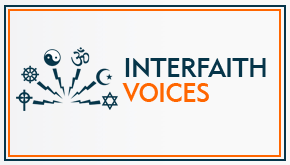From the Parliament of Religions to the National Prayer Breakfast, Interfaith Ideas have Evolved
President Donald Trump’s recent speech at the National Prayer Breakfast reignited a perennial debate over whether the U.S. was founded upon a particular religion – specifically, Christianity. As the debate continues, a growing group of faith leaders are working to build bridges across religious lines. But many bristle at calling this work “interfaith.” To understand why the word is loaded, we talk with Katherine Marshall.
Katherine Marshall is our guest who is a senior fellow at the Berkley Center for Religion, Peace, and World Affairs at Georgetown University.
Muslims Jews and Evangelical Christians commit to pact protecting religious minorities
Recently, 400 faith leaders from different traditions pledged to address the persecution of religious minorities in the United States and call for action to help the vulnerable. The conference included Jews, Muslims, and, notably, a large contingent of Evangelical Christians – a group known for its reservations about Islam. Guests include Imam Mohamed Magid, of the All Dulles Area Muslim Society (ADAMS Center)
Rabbi Bruce Lustig, of the Washington Hebrew Congregation and
Pastor Bob Roberts, founder of NorthWood Church.
What Role can atheists and humanists play in multi-faith work?
Our country’s religious demographics are shifting, and there is a growing number of people who don’t identify with a faith tradition. But many atheists, non-theists and humanists still want to be part of conversations occurring across faith lines. Roy Speckhardt is the executive director of the American Humanist Association.



